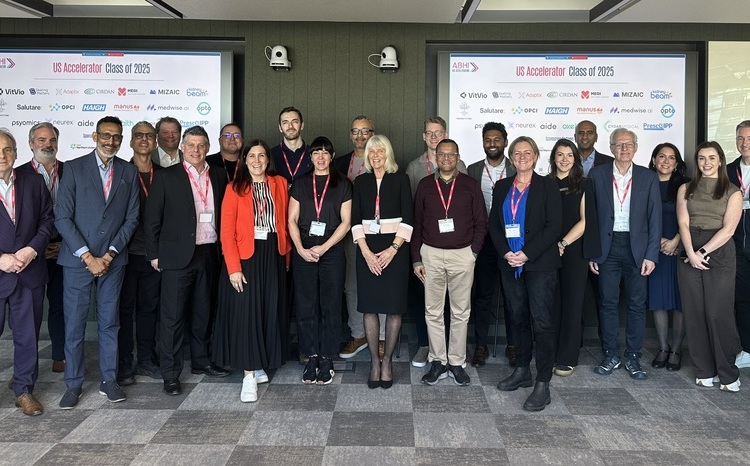Your morning summary of digital health news, information and events to know about if you want to be “in the know”.
 News
News
 The first of NHS England’s Independent Prescriber Pathfinder programme sites has gone live with CLEO SOLO Electronic Prescription Service (EPS) at Well Pharmacy in Keighley. The pilot programme spans 210 community pharmacy sites across the 42 integrated care boards across England and is the first national programme to enable community pharmacists to use their independent prescribing qualification to prescribe for NHS clinical services. NHS England announced in August that it had signed a contract to roll out CLEO SOLO across community pharmacy sites, allowing them to generate prescriptions via the NHS EPS.
The first of NHS England’s Independent Prescriber Pathfinder programme sites has gone live with CLEO SOLO Electronic Prescription Service (EPS) at Well Pharmacy in Keighley. The pilot programme spans 210 community pharmacy sites across the 42 integrated care boards across England and is the first national programme to enable community pharmacists to use their independent prescribing qualification to prescribe for NHS clinical services. NHS England announced in August that it had signed a contract to roll out CLEO SOLO across community pharmacy sites, allowing them to generate prescriptions via the NHS EPS.
 European university medical institute Erasmus Medical Centre has extended its partnership with Qure.ai to deploy AI-powered chest X-ray interpretation and patient tracking tools for early lung cancer detection. Over the next year, 100,000 chest X-rays will be reviewed using Qure’s qXR AI solution, which will be integrated into Erasmus’s radiology workflow. This will be complemented by Qure.ai’s new lung nodule management platform, qTrack, which aims to improve survival rates and streamline care by ensuring timely follow-ups and coordination for patients.
European university medical institute Erasmus Medical Centre has extended its partnership with Qure.ai to deploy AI-powered chest X-ray interpretation and patient tracking tools for early lung cancer detection. Over the next year, 100,000 chest X-rays will be reviewed using Qure’s qXR AI solution, which will be integrated into Erasmus’s radiology workflow. This will be complemented by Qure.ai’s new lung nodule management platform, qTrack, which aims to improve survival rates and streamline care by ensuring timely follow-ups and coordination for patients.
 Hertfordshire Community NHS Trust has created a “digital front door” on the trust website to streamline the referral processes into its children’s and adult services. The feature is part of an ongoing quality improvement project to improve access to care for patients, families and carers in the local community across Hertfordshire, west Essex, East Anglia, Bedfordshire, Luton and Milton Keynes. It is hoped the new feature will enhance the user experience for referrers and support colleagues across the system to make timely referrals.
Hertfordshire Community NHS Trust has created a “digital front door” on the trust website to streamline the referral processes into its children’s and adult services. The feature is part of an ongoing quality improvement project to improve access to care for patients, families and carers in the local community across Hertfordshire, west Essex, East Anglia, Bedfordshire, Luton and Milton Keynes. It is hoped the new feature will enhance the user experience for referrers and support colleagues across the system to make timely referrals.
 Researchers from Imperial College London, Technical University of Munich and Edinburgh University have developed AI software that is twice as accurate than current methods pinpointing the time a stroke happened. In a December 2024 study, the AI algorithm was trained on 800 brain scans where the time of stroke was known and tested on 2,000 patients. It outperformed the traditional method of clinicians manually reviewing CT scans and could enable faster and more accurate emergency treatment of patients in hospitals, the researchers say.
Researchers from Imperial College London, Technical University of Munich and Edinburgh University have developed AI software that is twice as accurate than current methods pinpointing the time a stroke happened. In a December 2024 study, the AI algorithm was trained on 800 brain scans where the time of stroke was known and tested on 2,000 patients. It outperformed the traditional method of clinicians manually reviewing CT scans and could enable faster and more accurate emergency treatment of patients in hospitals, the researchers say.
 Healthtech company Cera says it is projected to save the NHS £125 million this winter through its AI-powered home healthcare model. The company aims to keep thousands of elderly and vulnerable patients out of hospital, reducing A&E waiting times and freeing up beds amid a challenging winter season. Cera’s AI algorithms analyse patient data to flag high-risk cases, identifying issues like fall risks and symptoms of cold-related illnesses. It hopes this approach will lower hospital admissions by up to 70%.
Healthtech company Cera says it is projected to save the NHS £125 million this winter through its AI-powered home healthcare model. The company aims to keep thousands of elderly and vulnerable patients out of hospital, reducing A&E waiting times and freeing up beds amid a challenging winter season. Cera’s AI algorithms analyse patient data to flag high-risk cases, identifying issues like fall risks and symptoms of cold-related illnesses. It hopes this approach will lower hospital admissions by up to 70%.
 Did you know?
Did you know?
Nearly half (48%) of UK adults have self-diagnosed using online health information in the past year, according to an AXA Health survey of 4,000 UK respondents. Among 16-24-year-olds, nearly one in five (18%) have done so at least four times in the last 12 months.
The survey was conducted in August 2024 via Censuswide. Social media was identified as a growing concern, with 30% of respondents – especially younger individuals – turning to platforms like TikTok and Instagram, raising questions about the reliability of health information. Mental health self-diagnosis is notably high, with 52% of young people who self-diagnosed citing conditions like anxiety and depression, the survey found.
It also revealed that the average UK adult spends 54 days a year feeling anxious about health information online, with 78% calling for stricter regulation to ensure its accuracy.
 What we’re reading
What we’re reading
‘How improvement can help NHS productivity’, published by the Health Foundation on 10 December, explores the interconnected challenges and opportunities for improving NHS productivity, with a particular focus on the role of technology.
The joint analysis from the Health Foundation and its Q community highlights how digital tools like video consultations and digital messaging can save staff time by automating routine tasks. However, it notes that their success depends on proper implementation.
It also emphasises the need to integrate new technologies into workflows and ensure staff and patient buy-in. Beyond technology, the report explores the broader context of NHS productivity pressures, including inefficiencies, patient flow challenges and the need to shift the narrative around productivity. It argues that productivity gains should be seen as a way to improve care quality, rather than a purely financial exercise.
“Mention productivity improvement to many front-line staff and the response is often a sharp intake of breath and suspicion that it is code for them being asked to work harder with no extra support.
“A new productivity narrative is needed – one that sees productivity gains not just as a way to meet finance-driven goals but as enabling sustainable improvements in care quality.
“Communicating this would help to garner support from front-line staff and policymakers alike and allow it to build a momentum that has often been missing from previous productivity-related interventions,” the report says.
 Upcoming events
Upcoming events
30 January, virtual event – NHS Digital Transformation 2025














